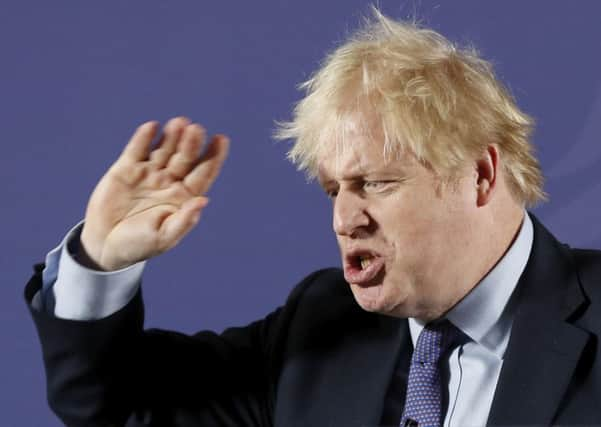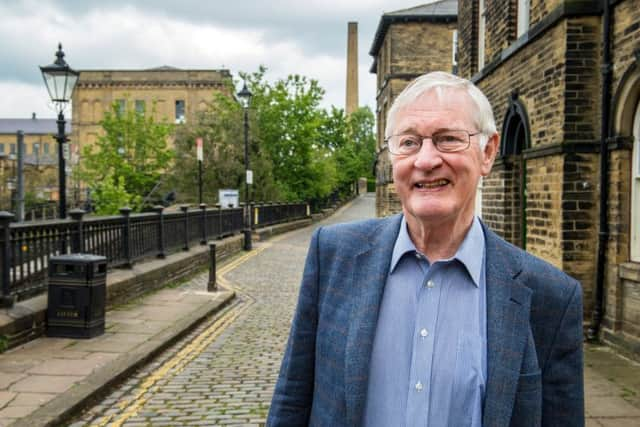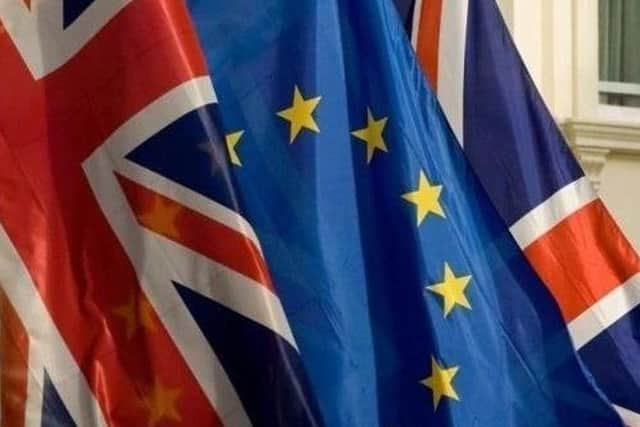Brexit grand ambition of Boris Johnson is a grand illusion – William Wallace


Readers will have followed the changing fortunes of the remains of British Steel, as it has been sold from British to American to Indian and now potentially Chinese owners. Not much economic independence there: valued jobs in a key element in the UK’s industrial base have been handed on from one distant foreign company to another, dependent now on negotiations with the 19th largest Chinese steel company.
Advertisement
Hide AdAdvertisement
Hide AdThat’s been the story of so much of British industry since the Thatcher government. ICI, Rowntree, GKN, Boots and many other British staples have fallen to overseas takeovers, often followed by factories sold off and production transferred to other countries.


Does Boris Johnson propose to rebuild our economic independence through some form of re-nationalisation? One of the most striking contradictions of the Conservatives’ nationalist rhetoric is that their more generous funders are venture capitalists and hedge fund owners, operating – often from offshore financial centres – to profit from selling assets at the largest margin they can find, rather than considering what is best for the British economy.
Advertisement
Hide AdAdvertisement
Hide AdArron Banks, the largest donor to the Leave campaign, benefited from offshore companies in Gibraltar and the British Virgin Islands, with business interests also in Russia – none of which embarrassed him in campaigning to free Britain from foreign interference. Russian residents in London have been among the most generous donors to Conservative-oriented think- tanks, and at party fundraising functions.


The PM’s promise that we will now recover our role as ‘Global Britain’ is romantically nostalgic. It harks back to the Empire, with Canada and Australia to become again our closest trading partners. But we can’t go back to the world of the 1950s, or even of 1972, just before we joined the EEC. That was a world without mobile phones, in which coal miners and dockers were the working-class elite, and few of us went further on holiday than the English coast. Now our government has to choose between dependence on the Chinese Huawei corporation for mobile communication equipment or acceptance of delay, while working to bring British tourists back from Asia in the face of a Chinese epidemic.
General Nick Houghton, a Yorkshireman and recent Chief of the Defence Staff, last week criticised our ‘national military nostalgia’, which has led governments to spend huge sums on aircraft carriers and a nuclear deterrent as symbols of great power status, while neglecting newer threats which affect Britain alongside other countries.
The Prime Minister has talked of Global Britain sending ships across the Indian Ocean. But we cannot afford a Navy large enough to support a full aircraft carrier group at such a distance, unless we combine with the navies of other countries or operate as part of a US-led fleet.
Advertisement
Hide AdAdvertisement
Hide AdDependence on the USA is the greatest constraint on the UK’s economic and political independence. Ministers keep assuring us that the USA will offer us a generous trade agreement without pre-conditions. But President Trump is pressing Britain to follow US sanctions on Iran, while threatening that permitting Huawei to build its equipment into our communications structure will threaten future intelligence co-operation. And Congress is lobbying for concessions on food standards, and for higher NHS prices of US pharmaceutical products, as conditions for any trade deal.
Margaret Thatcher and Sir Geoffrey Howe had a better appreciation of the advantages of economic interdependence and political co-operation. Mrs Thatcher pressed for the creation of the EU Single Market, standardising regulations to allow British companies to compete on a level playing field across the continent. She understood that free trade is incompatible with absolute sovereignty, and chose free trade. Geoffrey Howe argued for sharing sovereignty in order to maintain global influence, through working with neighbours who share our political values.
However this Government has turned its back on Thatcher’s legacy, in pursuit of the goal of restoring what Boris Johnson calls ‘sovereign equality’.
His speech asserted that we need make no concessions to the EU, that we can bargain better on our own with China as well as with the USA, and that we will lead the world into a new era of global free trade. This year will show how far this grandiose vision can survive the hard realities of economic interdependence and conflicting political priorities.
Lord Wallace of Saltaire is a Lib Dem peer and a former Minister.